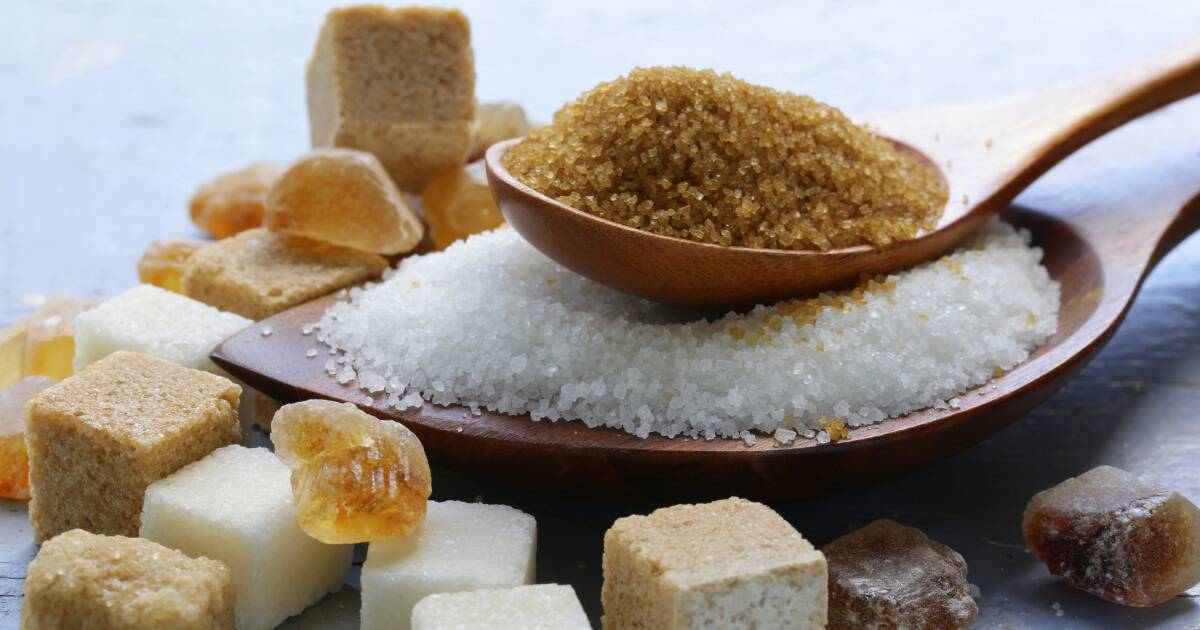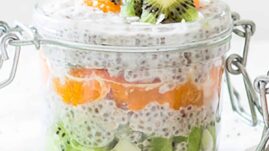People with diabetes are often told to watch how much sugar they eat and, usually, to limit foods with added sugars.
However, many sugar alternatives are now becoming popular for health-conscious and people with diabetes alike. But are these alternatives really healthier?
This article will explore what coconut sugar is, if it’s healthy, and if and how you should incorporate it into your diet if you live with diabetes.

Table of Contents
What is coconut sugar?
Coconut palm sugar, or coconut sugar, is a sugar derived from coconut palm sap.
It is found naturally in coconut palm trees. The finished product is the sugar that is left over after dehydrating the palm sap.
Coconut sugar is brown and has a strong caramel taste. It is used in baked goods, nutrition bars, cereals, cakes, cookies, and other treats.
It’s plant-based and minimally processed, and it has a lower glycemic index (GI) than table sugar.
The GI of food measures how fast it raises blood sugar levels.
For example, the GI of glucose is 100. The GI of table sugar is 60, and the GI of coconut sugar is 54.
The nutritional information of one teaspoon of coconut sugar is:
- 18 calories
- 0 grams of protein
- 0 grams of fat
- 5 grams of carbohydrates
- 0 grams of fiber
- 5 grams of sugar
What are the health benefits of coconut sugar?
The following are health benefits of eating coconut sugar instead of table sugar or other added sugars:
Trace vitamins and minerals
Coconut sugar retains vitamins and minerals naturally found in the coconut palm tree.
These include:
- Iron
- Zinc
- Calcium
- Potassium
- Insulin (soluble fiber)
However, to gain any benefit from these trace vitamins and minerals, you would need to eat a lot of coconut sugar. The added carbohydrates and calories in your diet may not be worth it.
Plant-based and minimally processed
Coconut sugar may be for you if you’re looking for a natural sweetener that hasn’t been extensively processed.
This sweetener is made from plants, and the dehydrating process is straightforward and natural, without any dyes or artificial ingredients added to it.
What do you have to be wary of if you eat coconut sugar?
Although there are trace vitamins and minerals in coconut sugar, and it is plant-based and minimally processed—it is still a form of added sugar to foods.
If you eat coconut sugar, be aware that it:
Causes blood sugar spikes
Even though the GI of coconut sugar (54) is less than table sugar (60), having any added sugars in your diet will spike blood sugar levels.
Additionally, most people who are insulin-dependent will have to take insulin when they eat foods containing coconut sugar.
Finally, coconut sugar is not usually eaten alone, but it is added to things like oatmeal, smoothies, granola, or nutritional bars, which also usually require an insulin dose.
Adding coconut sugar to foods that already have sugar and carbohydrates will only spike your blood sugars further.
Has added calories
Although coconut sugar can be a healthier alternative to table sugar, it still adds calories to your diet, most of which are not nutritionally sound.
Most doctors and health experts recommend limiting added sugars in your diet.
You should not get more than 20% of your total daily caloric intake from added sugars, including coconut sugar.
Eating too much sugar is correlated with weight gain, obesity, metabolic diseases like type 2 diabetes, high blood pressure, and heart disease.
Should people with diabetes eat coconut sugar?
Simply put, coconut sugar is not a health food.
If you’re looking to cut down on added sugar in your diet but are looking for something sweet, eating foods like whole fruits (blueberries, blackberries, or raspberries) is the healthier option.
Coconut sugar will most likely have a similar effect on your blood sugar level that table sugar does. If you take insulin, you most likely will have to bolus when you eat foods containing it.
Coconut sugar is slightly healthier than table sugar but not as healthy as eating no sugar at all.
Talk with your doctor and work with a registered dietitian (RD) to help you build a sustainable meal plan incorporating occasional treats, such as coconut sugar, into your diet.
It can be done without dismantling your diabetes management.
Do you have to take insulin for coconut sugar?
This will all depend on if you take insulin to manage your diabetes.
If you do, this will also depend on your insulin-to-carbohydrate ratio.
For most people, however, they do need to take insulin for coconut sugar, just as they would for foods containing table sugar, agave nectar, or honey.
Talk with your doctor if you have questions or concerns about taking insulin for foods containing coconut sugar.
How can I sweeten my foods naturally?
Some ways to sweeten your foods and drinks naturally include incorporating fruit into them.
The following ways can sweeten foods more naturally (and healthfully):
- Adding mashed-up banana to your oatmeal instead of maple syrup
- Adding a slice of an apple and cinnamon to morning granola or cereal instead of sugar
- Drinking water with a slice of lime or lemon instead of drinking soda
- Instead of sugar, adding fresh blueberries or strawberries to your protein smoothie
- Adding sliced pineapple to frozen yogurt instead of syrups or sprinkles
Talk with your doctor or work with a registered dietitian (RD) to help you create a meal plan.
They can help to devise strategies for including treats into your day that will be easier on your blood sugar levels and healthier for your body overall.
What is the best sugar for diabetics?
There is no “best sugar” for people with diabetes.
Aside from treating low blood sugars with glucose, the best sugar is probably eating no added sugar at all.
However, we are humans and not robots. The occasional treat, whether containing coconut sugar, honey, table sugar, or agave nectar, is fine and can be incorporated into a healthy, balanced diet.
Moderation is key. Eating naturally sweet foods, like whole fruits, is your best option.
Other natural sweeteners that won’t spike your blood sugar include cinnamon, cocoa powder, almond extract, or vanilla extract.
Learn more: The Best Sweeteners for People with Diabetes




Janet
Looking for coconut chia pudding recipe. Thanks
Christel Oerum
We have a lot of recipes on the website (https://diabetesstrong.com/recipes/), including Chia seed recipes. You can search Chia on the site, and I also think you’ll find this one helpful: https://diabetesstrong.com/healthy-chia-seed-pudding-recipes/